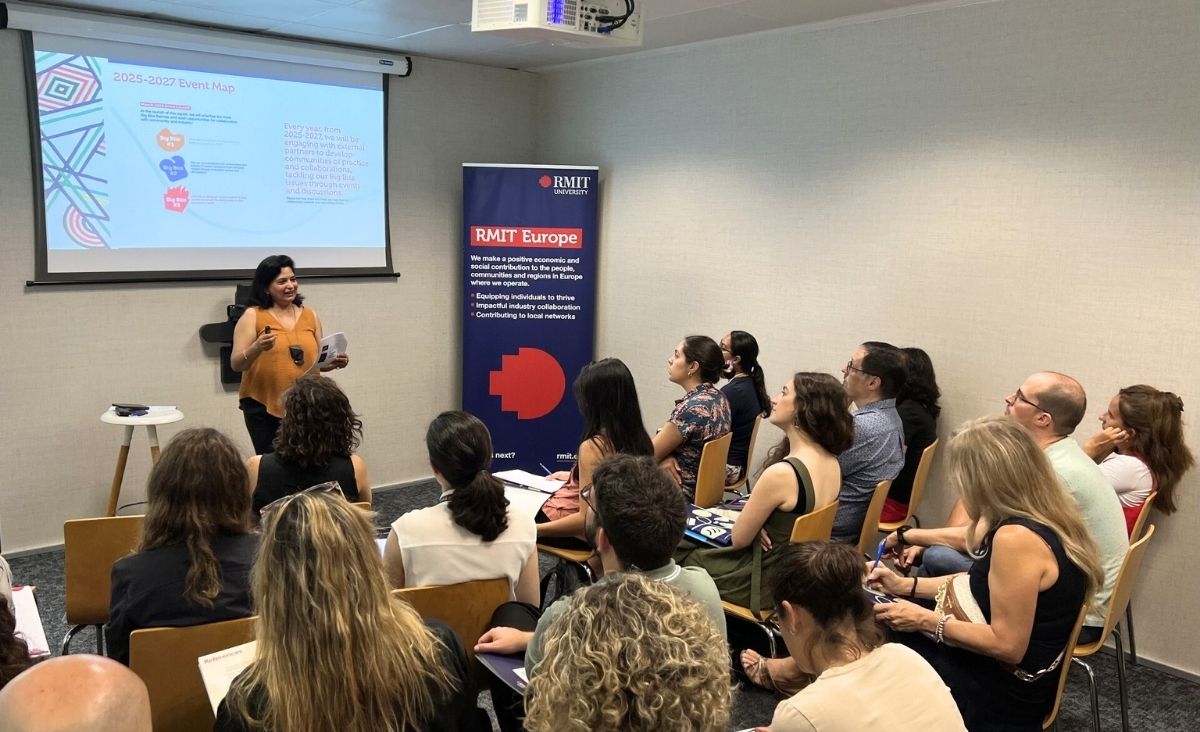RMIT Senior Research Fellow Bhavna Middha is exploring how food is experienced and practiced in everyday life and how this understanding can shape solutions to global food-related challenges.
Speaking from RMIT's European hub where she was recently based on a research secondment, Bhavna Middha said that there are common global challenges such as rising food security concerns, supply chain vulnerabilities, climate change and environmental degradation that threaten the sustainability of food systems.
"Each year, Australians waste 7.6 million tonnes of food, making food waste a major issue, ranging from household to industrial-scale food loss," she said.
Middha's work has seen her study the production, sorting and disposal of food waste in high-rise apartments, in people's homes and in cafes.
"My research focuses on how meanings such as convenience, freshness and hygiene shape social practices across space and time, leading to food waste."
According to the researcher, another major issue in Australia - as well as globally - is access to quality food, which is mostly linked to the rising cost of living.
"Many people live in areas where affordable access to fresh food is limited, while others cannot afford nutritional meals due to a combination of financial and temporal constraints," she said.
Ultra-processed foods are also a complex topic.
Middha said that while these have the potential to reduce food waste and contribute to the pleasure that people experience around food, there are also concerns about potential long-term effects on health.
"RMIT's intersection across food waste, food access and affordability and ultra-processed foods demonstrates why our network is leading the way in producing innovative, impact-driven solutions to complex food issue."

Led by RMIT Senior Research Fellow Dr Bhavna Middha, the workshop Food Cultures and Practices opened opportunities for collaboration with community and industry.
Middha, who works within RMIT's Centre for Urban Research, has been on a research secondment at RMIT Europe to further the University's food and circular economy research agenda and create collaborative networks in Europe.
The recent workshop in Barcelona on Food Cultures and Practices created a space for open dialogue and knowledge sharing around the socio-cultural dimensions of food, fostering a collaborative environment for food research and its real-world impact.
"Challenges related to food, such as food security, sustainability, malnutrition and climate change, are deeply interconnected," Middha said.
"By bringing people together, integrating knowledge from various fields and communities, and actively engaging diverse stakeholders, we can address these complex food issues."'
The event also included the launch of RMIT's Food Cultures and Practices Network's Capability Report.






